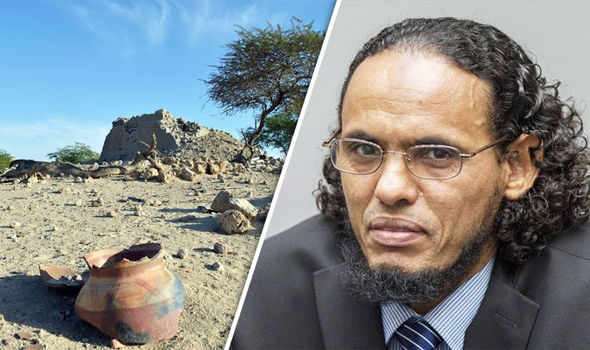-
Tips for becoming a good boxer - November 6, 2020
-
7 expert tips for making your hens night a memorable one - November 6, 2020
-
5 reasons to host your Christmas party on a cruise boat - November 6, 2020
-
What to do when you’re charged with a crime - November 6, 2020
-
Should you get one or multiple dogs? Here’s all you need to know - November 3, 2020
-
A Guide: How to Build Your Very Own Magic Mirror - February 14, 2019
-
Our Top Inspirational Baseball Stars - November 24, 2018
-
Five Tech Tools That Will Help You Turn Your Blog into a Business - November 24, 2018
-
How to Indulge on Vacation without Expanding Your Waist - November 9, 2018
-
5 Strategies for Businesses to Appeal to Today’s Increasingly Mobile-Crazed Customers - November 9, 2018
Former al-Qaeda rebel leader begs for forgiveness after smashing holy shrines
Ahmad al-Faqi al-Mahdi has admitted today (Aug 22) to razing all but two of the city’s 16 mausoleums as well as a mosque dating back to 1400 during a raid by Islamist radicals in 2012.
Advertisement
Prosecutors said that Ahmad al-Faqi al-Mahdi, a member of a jihadi group linked to al-Qaida, took part in the smashing of a number of venerable centuries-old mud and stone buildings holding the tombs of holy men and scholars.
The ground-breaking trial comes at a time of growing worldwide alarm over the destruction of cultural heritage sites by jihadist groups across many parts of the world.
For the people of Timbuktu, freed from Islamist occupation by French troops in 2013, Mahdi’s trial is “a vindication of the importance of their culture and the place these shrines hold … as symbols of the culture”, says Cynthia Schneider, co-director of the Timbuktu Renaissance initiative.
“I plead guilty”, Mahdi said, after being read the charge arising from the 2012 attack on the UNESCO world heritage site when a group of Islamist jihadists swept across Mali’s remote north.
Fatou Bensouda, the court’s chief prosecutor, who was raised as a Muslim in Gambia, said that it was Mahdi “who identified the sites to be destroyed and who provided the means” to do so, including pickaxes and crowbars.
“I seek their forgiveness and I ask them to look at me as a son who has lost his way”, Mahdi said of the people of Timbuktu.
Mahdi, aged about 40, is also the first Islamic extremist charged by the ICC and the first person to face a solo allegation of cultural destruction.
In the build-up to the hearing, she compared the attacks to Islamic State’s smashing of monuments in the Syrian city of Palmyra and the Taliban’s 2001 destruction of the Bamiyan Buddha statues in Afghanistan. The court’s recent enforcement of the statute could set a precedent for similar cases like ISIL’s destruction of the ancient city of Palmyra past year.
It is the first ICC trial to charge an individual for war crimes against a historic and cultural monument.
Appearing at the Hague on Monday, al Mahdi was told the details of the charge and then said to the judge: “Your honour, regrettably I have to say that what I heard so far is accurate and reflects the events”.
Numerous mausoleums date back to Timbuktu’s days of glory in the Middle Ages, when it was one of the greatest centres of learning and trade in the Islamic world.
Prosecutors revealed at the trial’s start that a deal with his defense lawyers could reduce the likely jail term to between nine to 11 years.
Advertisement
Much of the world’s cherished cultural and religious sites represent a common desire for self-reflection and an understanding of eternity. Under his command, ISIS brigades destroyed nine mausoleums in the “City of 333 Saints”, which is a world cultural heritage. A maximum sentence would be 30 years.





























